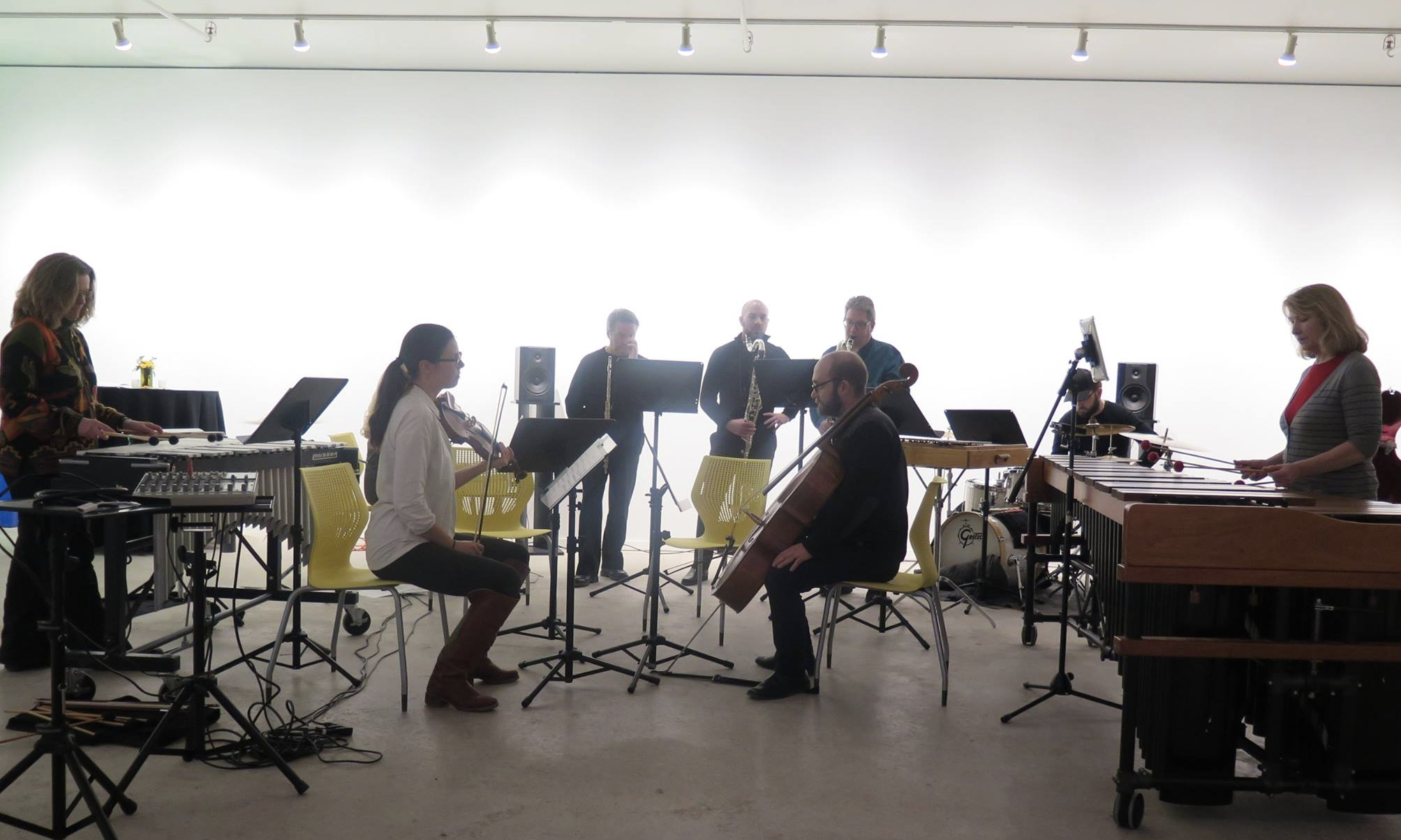by Mike Telin

Receiving its world premiere, Nicholas Underhill’s No Exit for Zeitgeist was written to celebrate the collaboration between the two ensembles. Underhill took full advantage of the forces at his disposal — violin, viola, cello, flute, two clarinets, two keyboards, and three percussionists. Based on a single scale, a hybrid of Mixolydian and Harmonic minor, the work also “makes indirect references to pieces by Kaija Saariaho and Andy Rindfleisch, as well as other solo pieces I have heard played in our concerts,” Underhill writes in his composer notes.
It begins with a scale spread over multiple octaves that continually grows into an intense, pulsating chord. A celestial middle section is highlighted by haunting solos for the viola and violin, giving way to an extended percussion cadenza before ending with a loud, short chord. Conductor James Praznik led a tight performance of the rhythmically complex work.
Twin-Cities-based composer Joshua Musikantow’s Tzimtzum also received its world premiere. Introducing the work, Musikantow said the title is Hebrew for “contraction,” a concept in the Lurianic Kabbalah that states that in order for God to create a space for lesser spiritual and physical planes to exist, God must contract, or conceal his/herself.
Based on a fifteen-note scale with nine fixed tones and six microtones, the hypnotic work is a study in shifting timbers. No Exit’s violinist Cara Tweed, violist James Rhodes, cellist Nicholas Diodore, flutist Sean Gabriel, bass clarinetist Gunnar Owen Hirthe, pianist Nicholas Underhill, and percussionist Luke Rinderknecht gave the seven-minute piece a captivating performance.
Commissioned by Zeitgeist, Cambodian-American composer Chinary Ung’s Spiral XIV “Nimitta” is grounded in the traditions of Khmer Pinpeat — the ceremonial music of Cambodia — and Balinese Gamelan. The subtitle “Nimitta” is a Pali word meaning a sign or image that is received through meditation. Ung makes use of “heterophony,” a single, constant melody that is embellished simultaneously by other voices. Zeitgeist’s clarinetist Pat O’Keefe, pianist Nicola Melville, and percussionists Heather Barringer and Patti Cudd gave a dramatic reading of the brilliantly crafted, intense work.
Eric M. C. Gonzalez’s Found Again, Secure in Migration is a three-movement work that comments on “monumental life transitions.” The former Clevelander explained that he and his significant other had recently relocated to St. Paul. The first movement, “A Recent Distant Past,” is about the reliability of home and reminiscing on separation. “A Forward Moving Pilgrimage” is about the sense of wonder that is brought on by new opportunities, while “Fortunate Companions” is about knowing where you came from and knowing where you are headed. Gonzalez weaves a variety of musical styles throughout the mercurial work, including walking bass-lines and boogie-woogie licks. O’Keefe, Melville, and Barringer brought every mood change to life.
Written for piano and any combination of additional instruments, Bill Ryan’s Blurred begins with repeated notes in the piano. As instruments are added the piece blossoms into a colorful soundscape and gradually diminishes until the repeated piano notes quietly fade away. The piece is mesmerizing and members of both ensembles sounded terrific together.
Published on ClevelandClassical.com January 24, 2018.
Click here for a printable copy of this article


